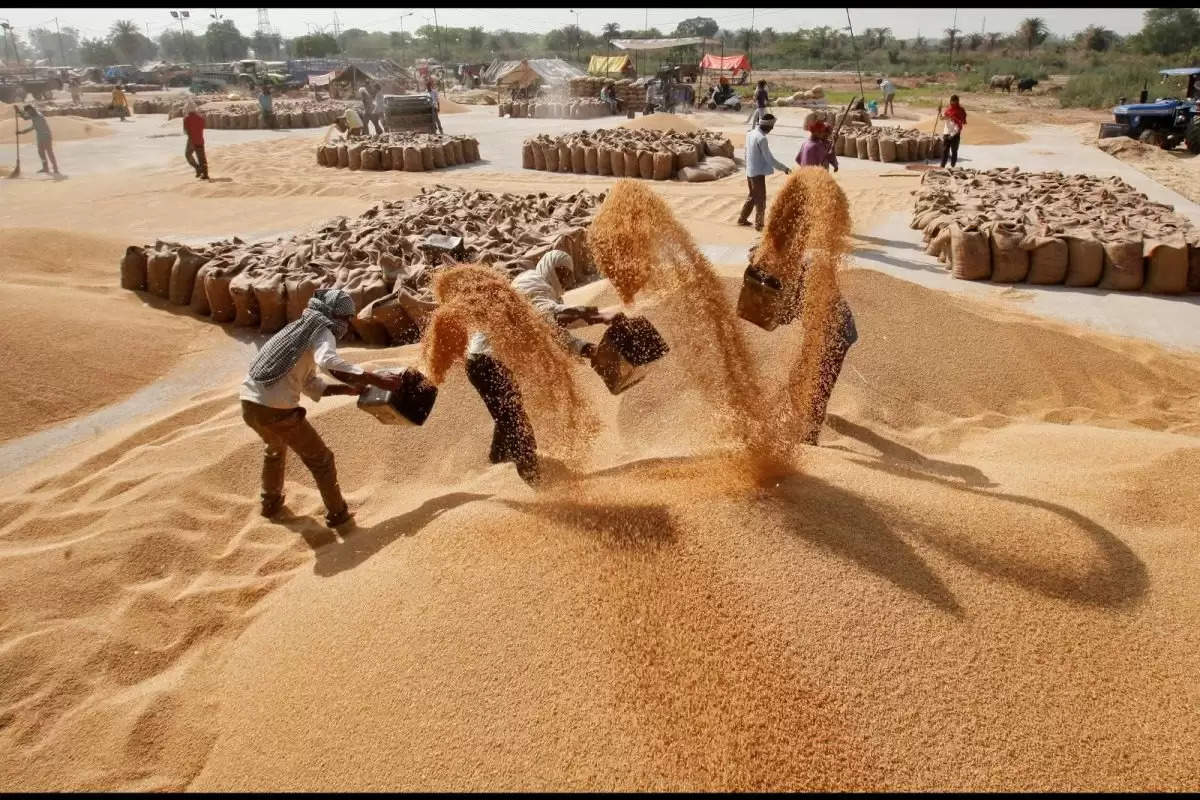India criticizes affluent countries for resource imbalance.

Union Commerce Minister Piyush Goyal made the remark while representing India at the plenary session of the World Trade Organization's Twelfth Ministerial Conference (MC12) on Sunday, where he urged members to assist the least developed countries (LDCs) in recovering from the pandemic and gaining access to foodgrain supplies that have been subjected to high global inflation due to the war in Ukraine.
"The epidemic underscored the necessity of 'One Earth, One Health,' calling for global solidarity and collaborative action," he added, alluding to India's efforts to increase medical product supply internationally and provide Covid-essential commodities, like as vaccinations, to numerous countries.
"Unfortunately, the WTO was unable to reply quickly. We have let the people of LDCs and developing nations down. The affluent countries must reflect! "We must be ashamed of our failure to respond to the epidemic in time," he stated in his speech.
Goyal drew the multinational forum's attention to the humanitarian situation caused by spiraling food inflation, calling it a "subject of profound concern," while also emphasizing the significance of fostering local food production capacity. "Rising food costs endangers the lives of millions and subject poor and vulnerable nations/people to defective markets," he stated.
India, which supports its 800 million poor through food security programs such as the 3.4-crore Prime Minister Garib Kalyan Ann Yojana (PMGKAY), has reaffirmed the necessity for public procurement of food stocks by paying farmers a minimum support price (MSP).
"Following the Bali Ministerial Decision in 2013, the General Council mandated in 2014 that a lasting solution to the issue of public food stocks, which has already been postponed, should be the top priority for MC12 before we move on to other areas." Nothing is more essential than this for the people of the globe," he remarked.
The problem of public food stocks arises from the WTO's prohibitions on government subsidies, which were designed to keep markets competitive internationally. However, economic disparities have challenged this system, particularly for emerging nations.
"Our common moral mission is to ensure that no one goes to bed hungry anywhere in the globe, and WTO regulations should make this easier." "The Covid-19 epidemic has emphasized the importance and effectiveness of food stockpiling for the general benefit," he stated.
The G33, a coalition of 47 developing and least developed nations, supports India's position on this issue. Separately, Goyal asked the G33 to work together to achieve a fair, balanced, and development-focused resolution at the WTO, which must include a permanent solution for public stockholding.
According to current WTO regulations, a member country's food subsidy is limited to 10% of the value of output in 1986-88 prices. A peace clause allows the cap to be exceeded in certain situations.
Last year, India used the peace clause for the third time for rice purchases that exceeded the 10% subsidy cap it set for its farmers, which is essential for the country's food security.
According to India's revised statistics, overall subsidies provided by the United States and the European Union states greatly outnumber those provided by India.
India and other like-minded countries now seek a long-term solution to this problem. The 'peace clause' was approved as an "interim remedy" during the Ninth Ministerial in Bali in December 2013 to avoid generating disputes under different articles of the WTO Agreement on Agriculture (AoA) with respect to the public stockholding (PSH).
India wanted differentiated treatment in fishing between developed and poor countries. "Fishing by traditional fishermen and women in my nation addresses hunger, poverty, food and nutrition insecurity, and is primarily subsistence fishing." Their right to life and a living must not be violated in any way. On the contrary, those nations responsible for depleted fish stocks should accept responsibility, having exploited the oceans for far too long by providing subsidies," he said, adding that living in harmony with nature is enshrined in Indian culture, and it's fishing communities customarily do not fish during the breeding season to allow stocks to replenish, thereby maintaining aquatic ecological balance.
According to Goyal, the WTO should adopt a people-first approach to trade. "...let me emphasize that when the world is experiencing terrible issues and looks to the WTO for solutions, the MC12 must send a strong statement that the affluent care about the poor, vulnerable, and marginalized people and that we have joined together to provide them a brighter future," he stated.
WTO reform is required to retain development at its heart, and decisions must be made in a clear, transparent, and inclusive manner that upholds the WTO's essential values and objectives, notably consensus-based decision making and special and unequal treatment (S&DT).
Because of historical causes, S&DT allows poor countries to make some compromises in comparison to the developed world.
"India strongly thinks that the WTO should not discuss regulations on non-trade issues such as climate change, gender, and so on," Goyal added.
Goyal, on the other hand, stated that India is devoted to environmental conservation. "India reiterates our Prime Minister's clarion appeal for sustainable living through 'Lifestyle For Environment (LiFE),' a campaign aiming at encouraging an environmentally conscious lifestyle, emphasizing mindful and purposeful utilization' rather than mindless and destructive consumption.' To underscore his argument, he paraphrased Mahatma Gandhi, who said, "The planet has enough for everyone's needs, but not for everyone's greed."
.png)